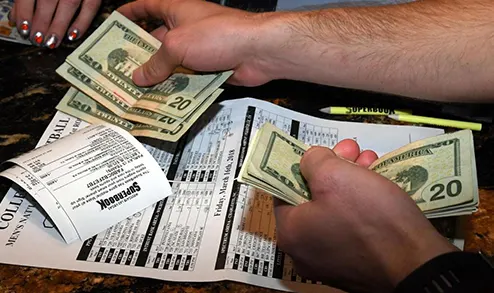 According to the recently released 2023 edition of the “Wagering in Illinois” report by the Commission on Government Forecasting and Accountability, the growing assortment of gambling products in the state generated a record high of $1.99 billion in gambling-related taxes over the fiscal year that ended June 30. That represented a 5.1% increase over the figures from Fiscal Year 2022.
According to the recently released 2023 edition of the “Wagering in Illinois” report by the Commission on Government Forecasting and Accountability, the growing assortment of gambling products in the state generated a record high of $1.99 billion in gambling-related taxes over the fiscal year that ended June 30. That represented a 5.1% increase over the figures from Fiscal Year 2022.
The report explores the legally sanctioned forms of gambling along with their economic impact, with the Illinois Lottery, casinos, video gaming terminals, sports betting, and horse racing at the forefront.
The Illinois Lottery still occupies the leading position in terms of generated gambling revenue, with $3.6 billion in sales and the major contributor being Instant Games.
Illinois adjusted gross receipts (AGR) at land-based casinos surged from $1.308 billion in FY 2022 to $1.430 billion in FY 2023, marking a 9.3% rise. This came as a result of the business activity of the thirteen existing casinos across the state.
They generated a total of $157 million in taxes for the state coffers in FY 2023, which, compared with the collected taxes in previous years was defined as modest. Although Rivers Casino in Des Plaines and several other casino establishments marked increased revenues, others based in Elgin and Aurora saw revenue growth slow.
As far as video gaming terminals across Illinois are concerned, their numbers spiked to over 45,000 by the end of FY 2023. They yielded a net terminal income of $2.8 billion in FY 2023, a 7.2% increase from FY 2022. Although casino revenues fell 12.9% from $1.6 billion to $1.4 billion in FY 2023, when added to those from video gaming, the total spiked to $4.3 billion, or a 159.1% increase.
Three years into the legalization of sports betting in Illinois, the sector accounted for $142 million in tax revenues. License fees brought about a small portion of additional revenues. The total from the Illinois sports wagering revenue was transferred to the Capital Projects Fund. Sports betting enthusiasts’s total wagering volume amounted to more than $10.4 billion.
Horse racing was the only gambling category that marked a decline during the last fiscal year.
Report’s Findings and Industry Experts’ Opinion to Take Into Consideration
As per the report’s findings, the recorded increase stems from the temperate growth of all gambling products, except horse racing. Tax revenue generated from video gaming terminals and the Lottery accounted for the most substantial increases.
The Commission on Government Forecasting and Accountability’s report concluded that the gambling tax revenue was expected to rise to new highs in the coming years, with the expansion of video gaming and sports wagering. Furthermore, the surge was propelled by the creation of casino venues in new markets.
Despite the record rise in gambling-related revenue in Illinois, industry experts shared their concerns over the sustained growth of the legally sanctioned gambling products in question. Alan Woinski, a consulting and market research expert and CEO of Gaming USA Corporation, doubted the profitability of investment initiatives into casinos in the state. According to him, the Illinois government created a fiercely competitive market that would impede their sustained growth.
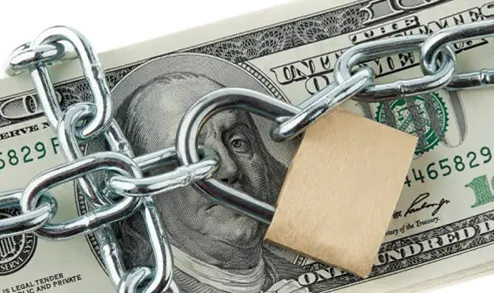 According to the most recent report issued by Indonesia’s Financial Services Authority, Otoritas Jasa Keuangan (OJK), 1,700 bank accounts have been frozen on account of presumed engagement with illegal online gambling. OJK has coordinated its activity with the Ministry of Communication and Information Technology, Kominfo in an attempt to enforce stringent anti-gambling measures.
According to the most recent report issued by Indonesia’s Financial Services Authority, Otoritas Jasa Keuangan (OJK), 1,700 bank accounts have been frozen on account of presumed engagement with illegal online gambling. OJK has coordinated its activity with the Ministry of Communication and Information Technology, Kominfo in an attempt to enforce stringent anti-gambling measures.  Several colours, such as blue, lime green, and pink, will be in trend next spring but the overarching theme in dozens of SS24 collections is neutrals. From JW Anderson’s collection where neutrals were paired with bright colours and pieces made from clay, to Versace’s pastels and Emporio Armani’s silver, taupe, black and gray, neutrals (in all their shades) will be big next season.
Several colours, such as blue, lime green, and pink, will be in trend next spring but the overarching theme in dozens of SS24 collections is neutrals. From JW Anderson’s collection where neutrals were paired with bright colours and pieces made from clay, to Versace’s pastels and Emporio Armani’s silver, taupe, black and gray, neutrals (in all their shades) will be big next season. 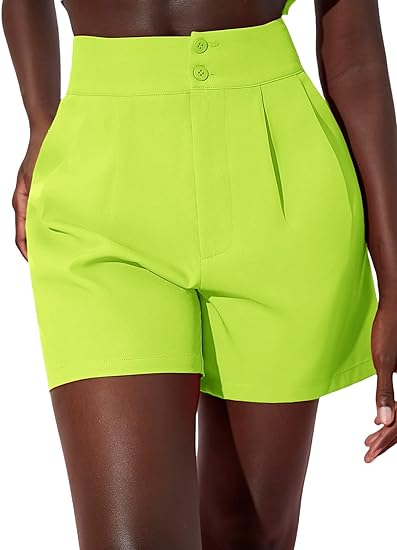 Shorts have been present for several years now, but next spring, they will be more revealing than ever. Fashion houses seem to be replacing long trousers with mini shorts, even in suits. Sometimes they are so risque they resemble underwear pieces such as those showcased by Tom Ford; other times, they can be classy and chic as in Gucci’s SS24 collection, or have pockets for more convenience as in Max Mara’s latest runway show.
Shorts have been present for several years now, but next spring, they will be more revealing than ever. Fashion houses seem to be replacing long trousers with mini shorts, even in suits. Sometimes they are so risque they resemble underwear pieces such as those showcased by Tom Ford; other times, they can be classy and chic as in Gucci’s SS24 collection, or have pockets for more convenience as in Max Mara’s latest runway show.
 Another piece of casual wear that made an appearance on the runways this September is the so-called capri pants or knee-length trousers and leggings. Several versions were showcased by Balmain at the Paris Fashion Week and by Phillip Lim in New York, with the exact length of the garments varying; some were above, some below the knee. Lots of designers offered their visions of this type of trouser during the New York Fashion Week – Batsheva, Lucky Jewel, Sandy Liang, Mirror Palais, Maisie Wilen, and Retrofête.
Another piece of casual wear that made an appearance on the runways this September is the so-called capri pants or knee-length trousers and leggings. Several versions were showcased by Balmain at the Paris Fashion Week and by Phillip Lim in New York, with the exact length of the garments varying; some were above, some below the knee. Lots of designers offered their visions of this type of trouser during the New York Fashion Week – Batsheva, Lucky Jewel, Sandy Liang, Mirror Palais, Maisie Wilen, and Retrofête.  Transforming a trend from the runway shows into wearable fashion can be tricky but one aesthetic that is easy to recreate is the dropped waistline dress. The silhouette may have originated in the 1920s but it keeps coming back; this year, drop waist dresses are already quite popular but fashion houses such as Jill Sander, Prabal Gurung, and Vaillant have made them even bigger for spring 2024. Even Prada showcased several vintage-inspired dresses with a dropped (or almost non-existent) waistline.
Transforming a trend from the runway shows into wearable fashion can be tricky but one aesthetic that is easy to recreate is the dropped waistline dress. The silhouette may have originated in the 1920s but it keeps coming back; this year, drop waist dresses are already quite popular but fashion houses such as Jill Sander, Prabal Gurung, and Vaillant have made them even bigger for spring 2024. Even Prada showcased several vintage-inspired dresses with a dropped (or almost non-existent) waistline.
 Light tones of blue could be seen at a large number of runway shows at the Milan, London, Paris, and New York fashion weeks. Giorgio Armani showcased various pieces in different shades of blue and the colour made an appearance in his Emporio Armani show too. Rey Chu’s ocean-inspired collection included soft blues combined with sandy whites, while Ferrari’s edgy runway show featured darker, brighter blue. Blue was also seen at Pierre Cardin’s and Mame Kurogouchi’s SS24 shows at Paris Fashion Week.
Light tones of blue could be seen at a large number of runway shows at the Milan, London, Paris, and New York fashion weeks. Giorgio Armani showcased various pieces in different shades of blue and the colour made an appearance in his Emporio Armani show too. Rey Chu’s ocean-inspired collection included soft blues combined with sandy whites, while Ferrari’s edgy runway show featured darker, brighter blue. Blue was also seen at Pierre Cardin’s and Mame Kurogouchi’s SS24 shows at Paris Fashion Week.
 Various outerwear garments will be trendy next spring, one of which is the bomber jacket. Different versions were shown at fashion shows over the past month but the cropped bomber jacket is probably the most prominent one. The trench coat is not going anywhere, and it is also a spring staple that has been around for decades. Bomber jackets, on the other hand, go in and out of fashion every few years and this time, they will be big for spring 2024 if the latest collections of Vaquera, David Koma, JW Anderson, and Jason Wu among others are anything to go by.
Various outerwear garments will be trendy next spring, one of which is the bomber jacket. Different versions were shown at fashion shows over the past month but the cropped bomber jacket is probably the most prominent one. The trench coat is not going anywhere, and it is also a spring staple that has been around for decades. Bomber jackets, on the other hand, go in and out of fashion every few years and this time, they will be big for spring 2024 if the latest collections of Vaquera, David Koma, JW Anderson, and Jason Wu among others are anything to go by.
 Corsets were a huge trend during the New York Fashion Week last month with designers such as Cristian Siriano, Palomo Spain, Dion Lee, Collina Strada, and The Blonds showing their own visions – not only on the models’ bodies but in their hair, too (think of corset braids). But the garment quickly made its way to the UK thanks to Harris Reed’s “Duet” collection, which unofficially kicked off London Fashion Week. The corset and corset lacing were also among the main highlights of Weinsanto’s runway show at the Paris Fashion Week.
Corsets were a huge trend during the New York Fashion Week last month with designers such as Cristian Siriano, Palomo Spain, Dion Lee, Collina Strada, and The Blonds showing their own visions – not only on the models’ bodies but in their hair, too (think of corset braids). But the garment quickly made its way to the UK thanks to Harris Reed’s “Duet” collection, which unofficially kicked off London Fashion Week. The corset and corset lacing were also among the main highlights of Weinsanto’s runway show at the Paris Fashion Week.
 Several different aesthetics have dominated fashion shows over the past month, with balletcore and corpcore (or corporate core) among them. But one surprising trend that appeared recently, and one that is here to stay, is mermaidcore. The ocean-inspired aesthetic has made its way to the Spring/Summer 2024 collections of designers such as Sandy Liang, Anna Sui, and Jason Wu. Along with dresses inspired by the mermaid silhouette, the trend features various shades of blue, a wet hair look, as well as shimmery make-up.
Several different aesthetics have dominated fashion shows over the past month, with balletcore and corpcore (or corporate core) among them. But one surprising trend that appeared recently, and one that is here to stay, is mermaidcore. The ocean-inspired aesthetic has made its way to the Spring/Summer 2024 collections of designers such as Sandy Liang, Anna Sui, and Jason Wu. Along with dresses inspired by the mermaid silhouette, the trend features various shades of blue, a wet hair look, as well as shimmery make-up.
 We tend to see black in winter collections but last month, many fashion houses reintroduced black for spring 2024; and not just as part of the look but all-black pieces. Black could be seen in the collections of Undercover, Prada, Moschino, Tom Ford, Dolce & Gabbana, Chopova Lowena, Saint Lauren, Dior, and many, many more.
We tend to see black in winter collections but last month, many fashion houses reintroduced black for spring 2024; and not just as part of the look but all-black pieces. Black could be seen in the collections of Undercover, Prada, Moschino, Tom Ford, Dolce & Gabbana, Chopova Lowena, Saint Lauren, Dior, and many, many more.
 One of the biggest trends next spring will continue to be silver and gold. From Beyoncé’s ‘Renaissance’ world tour, silver transferred to runway shows but metallics in all colours and hues were featured in designer collections last month. Gold is probably what stood out the most with iconic pieces showcased at the shows of Blumarine, Prabal Gurung, Christian Siriano, A. Potts, and most notably at Ralph Lauren’s SS24 runway show.
One of the biggest trends next spring will continue to be silver and gold. From Beyoncé’s ‘Renaissance’ world tour, silver transferred to runway shows but metallics in all colours and hues were featured in designer collections last month. Gold is probably what stood out the most with iconic pieces showcased at the shows of Blumarine, Prabal Gurung, Christian Siriano, A. Potts, and most notably at Ralph Lauren’s SS24 runway show.
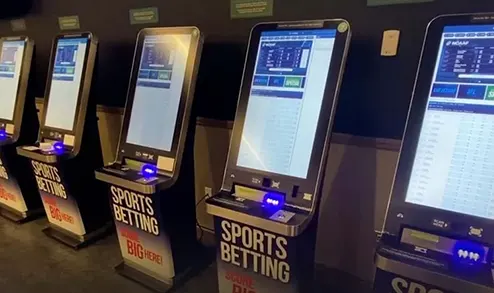 NeoGames’ subsidiary Pariplay, a popular iGaming aggregator, made its debut in the Pennsylvanian online gambling sphere via the company’s continued partnership with Rush Street Interactive (RSI). This deal introduced Pennsylvania-based gamblers to 14,000+ titles developed by the over 120 software suppliers that have integrated their content into Pariplay’s platform. In addition, Rush Street Interactive also gained access to Pariplay’s Fusion Tournaments, Raffle Rocket, and Spin That Wheel, which are the aggregator’s state-of-the-art back-office conversion and retention tools.
NeoGames’ subsidiary Pariplay, a popular iGaming aggregator, made its debut in the Pennsylvanian online gambling sphere via the company’s continued partnership with Rush Street Interactive (RSI). This deal introduced Pennsylvania-based gamblers to 14,000+ titles developed by the over 120 software suppliers that have integrated their content into Pariplay’s platform. In addition, Rush Street Interactive also gained access to Pariplay’s Fusion Tournaments, Raffle Rocket, and Spin That Wheel, which are the aggregator’s state-of-the-art back-office conversion and retention tools. Authentic Gaming, a premium live casino software company has received the seal of approval of the Michigan Gaming Control Board (MGCB) to offer its gambling products in the state. Established in 2015, the young iGaming studio is a respectable member of the gambling industry, delivering reliable and technology-driven live casino content to operators worldwide.
Authentic Gaming, a premium live casino software company has received the seal of approval of the Michigan Gaming Control Board (MGCB) to offer its gambling products in the state. Established in 2015, the young iGaming studio is a respectable member of the gambling industry, delivering reliable and technology-driven live casino content to operators worldwide.  An emergency ordinance announced earlier this week is set to introduce increased taxes and tighter restrictions that will affect gambling companies that target Romanian gamblers. The new legislation dictates that licensed operators will need to establish permanent domiciles within Romania in order to operate legally in the country.
An emergency ordinance announced earlier this week is set to introduce increased taxes and tighter restrictions that will affect gambling companies that target Romanian gamblers. The new legislation dictates that licensed operators will need to establish permanent domiciles within Romania in order to operate legally in the country. 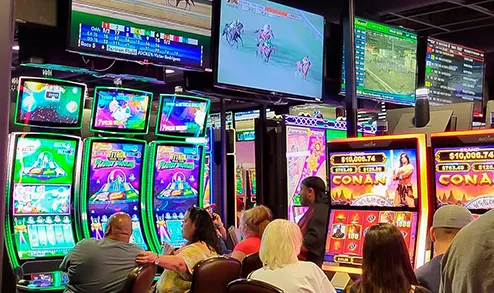 Brian Rockey, Director at the Nebraska Lottery and Charitable Gaming Division, recently observed the casinos’ impact on the volume of lottery sales and other gambling products in the state.
Brian Rockey, Director at the Nebraska Lottery and Charitable Gaming Division, recently observed the casinos’ impact on the volume of lottery sales and other gambling products in the state.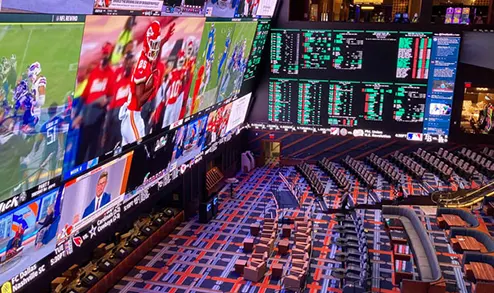 As part of a newly adopted amendment to the legislation that oversees interactive fantasy sports (ISF) in New York, the New York State Gaming Commission (NYSGC) prohibited paid fantasy contests that resemble prop-style bets. The new regulations were approved by the NYSGC on October 3.
As part of a newly adopted amendment to the legislation that oversees interactive fantasy sports (ISF) in New York, the New York State Gaming Commission (NYSGC) prohibited paid fantasy contests that resemble prop-style bets. The new regulations were approved by the NYSGC on October 3.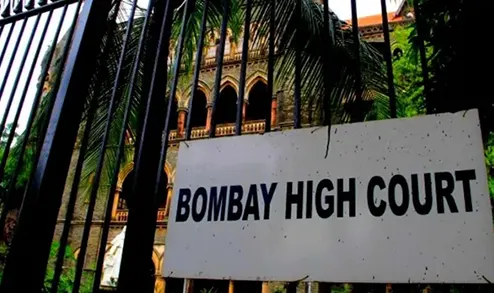 Rajendra Patil, a social activist from Ulwe in Navi, Mumbai, filed a Public Interest Litigation (PIL) through advocate Vinod Sangvikar before the Bombay High Court. What he required was a rigorous imposition of penalties on those who were in contravention of the anti-gambling legislation in India.
Rajendra Patil, a social activist from Ulwe in Navi, Mumbai, filed a Public Interest Litigation (PIL) through advocate Vinod Sangvikar before the Bombay High Court. What he required was a rigorous imposition of penalties on those who were in contravention of the anti-gambling legislation in India.  The Gaming Inspection and Coordination Bureau (DICJ) of Macau made an announcement on October 1, revealing that the region’s gaming sector generated 14.9 billion patacas ($1.85 billion) in gross gaming revenue (GGR) for the month of September. As per calculations by Bloomberg, this is 13.2% less than the growth observed in August, when the revenue reached 17.21 billion patacas ($2.12 billion).
The Gaming Inspection and Coordination Bureau (DICJ) of Macau made an announcement on October 1, revealing that the region’s gaming sector generated 14.9 billion patacas ($1.85 billion) in gross gaming revenue (GGR) for the month of September. As per calculations by Bloomberg, this is 13.2% less than the growth observed in August, when the revenue reached 17.21 billion patacas ($2.12 billion).